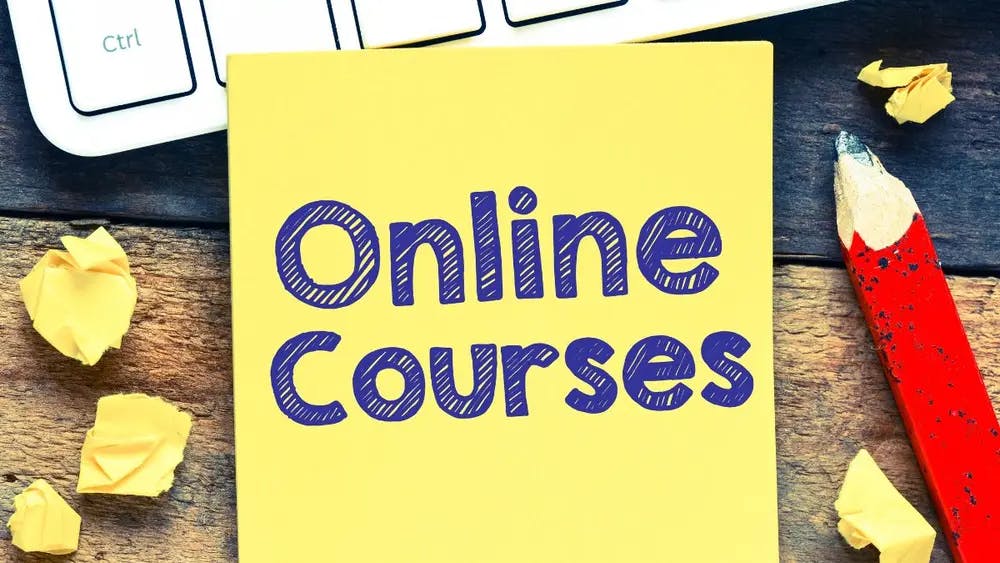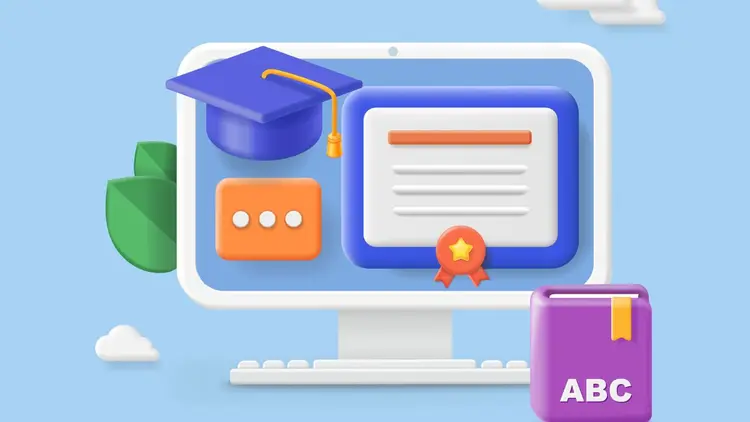

In the ever-evolving job market, standing out from the crowd has become more challenging than ever. As a recruiter, I’ve sifted through thousands of CVs, and one question that often pops up is: “Can you put free online courses on your CV?”
The short answer is a resounding yes, but there’s an art to doing it right. Free online courses are not just a testament to your ongoing professional development but also a reflection of your eagerness to acquire new skills. In this article, I’ll guide you through the hows and whys of including free online courses on your CV, peppered with real-life examples and a dash of storytelling.

The digital age has democratized access to education, with massive open online courses (MOOCs) leading the charge. These courses, available on platforms like Coursera, LinkedIn Learning, and Teach.io, cover a vast range of subjects—from data science and digital marketing to project management and effective communication. Online courses have become a significant part of professional training and development.
Including free online courses on your resume demonstrates not just your acquired skills but also your commitment to personal growth and adaptability to industry trends. It’s a way to showcase your ability to take initiative and stay updated with the necessary skills in your field.
However, it’s crucial to ensure that these courses are relevant to the job you’re applying for. Listing a course on Google Analytics might be a game-changer for a digital marketing role but less so for a position in social media or risk management.
The #1 to make money online with TikTok Search (FREE TRAINING)

In the vast expanse of the digital age, the proliferation of online courses has democratized access to education, offering myriad opportunities for learners around the globe. Whether paid or free, these courses serve as vital tools for professional development, skill enhancement, and lifelong learning.
The distinction between paid online courses and free online courses, however, is not merely a matter of cost but also involves differences in structure, content quality, access to resources, and perceived value, especially in the eyes of prospective employers.
Paid online courses often come with a structured curriculum designed by reputed institutions or industry experts. These courses typically offer a comprehensive learning experience, including interactive sessions, graded assignments, and sometimes, one-on-one mentorship.
They may also provide exclusive access to resources such as e-books, journals, and software tools. Upon completion, learners often receive a certificate of completion or a digital badge that can be added to a CV or LinkedIn profile, which can enhance a job seeker’s profile.

Free courses offer an accessible alternative to paid programs. These free online courses allow learners to explore new fields or enhance their skills without financial investment. Although they may not always offer the same level of interaction or access to resources as their paid counterparts, many free courses are still structured to provide significant value. They often include video lectures, readings, and discussion forums where learners can interact with peers.
The value of a free online course lies in its ability to provide learners with an overview of a subject or to complement existing knowledge. For individuals looking to break into a new field, free courses can offer foundational knowledge and demonstrate a commitment to self-improvement and lifelong learning. For professionals, they can serve as professional development courses, keeping skills sharp and up-to-date with industry trends.

The value of free online courses on a CV depends on the perspective of the hiring manager and the relevance of the course to the job role. In industries where skills and knowledge are rapidly evolving, such as technology and digital marketing, employers may value candidates who take the initiative to engage in continuous learning through free or paid courses. Demonstrating that you have completed relevant online courses shows a commitment to professional development and a proactive attitude toward learning.
However, the impact of listing free online courses on a CV may vary. Some employers might give more weight to courses from recognized institutions or those that offer a certification upon completion. It’s also important for job seekers to be selective about what they include on their CVs, focusing on courses that are directly relevant to the job or that showcase transferable skills.
Both paid and free online courses have their place in professional development and lifelong learning. While paid courses may offer a more structured learning experience with additional resources, free courses provide an accessible way to gain knowledge and skills. The key for learners is to choose courses that best fit their learning goals, professional development needs, and budget.
For prospective employers, the inclusion of online courses on a CV signals a candidate’s commitment to self-improvement and adaptability. However, it’s the relevance of the courses and the ability to apply the learned skills that will ultimately resonate with employers.

In the quest for self-improvement and skill enhancement, online learning platforms have emerged as pivotal resources. Offering a plethora of courses ranging from humanities to technical skills, these platforms democratize access to education. Among them, platforms that offer Massive Open Online Courses (MOOCs) with the option of obtaining a free certificate upon completion stand out for individuals aiming to advance their careers without financial strain.
One of the pivotal benefits of online education is the access it provides to vibrant learning communities. These communities offer a space for learners to interact, share insights, and provide support, enriching the learning experience beyond the confines of traditional classroom settings. An engaged community can facilitate deeper understanding through discussions, provide motivation during challenging courses, and offer networking opportunities that might lead to professional collaborations.
Among the myriad of platforms, Teach.io stands out for its commitment to fostering a strong learning community. Understanding that the journey of learning is as significant as the destination, Teach.io emphasizes the creation of an environment where students can connect with like-minded individuals. This approach not only enhances the learning experience but also encourages the development of a professional network that can be invaluable in one’s career.
While a free course can be selected from numerous platforms to develop technical skills and more, the value of a supportive and engaged online community cannot be overstated. Teach.io exemplifies how platforms can go beyond being mere repositories of knowledge to become thriving ecosystems where learning is amplified through connection and collaboration. Whether you’re looking to acquire new skills, earn a free certificate, or simply expand your professional network, the right online platform can serve as the gateway to achieving your goals.

The best place to list your free online certifications is under the Certifications or Professional Development sections of your CV. Here’s a step-by-step guide:
It’s recommended not to list these courses in the Education section, as that area should be reserved for formal education qualifications. Instead, emphasize your degree programs and supplement them with your online learning endeavors.
The #1 to make money online with TikTok Search (FREE TRAINING)

Let’s talk about Alex, a marketing professional who decided to pivot to data science. Alex took several free online courses in machine learning, data analysis, and data visualization from reputable platforms. By listing these courses on their CV, along with a concise description of the skills acquired, Alex successfully transitioned to a new career, showcasing the power of free online education in facilitating career changes.
Including online courses on your CV is more than just a way to fill space—it’s about telling a story of your professional journey. It signals to potential employers that you’re a lifelong learner, constantly seeking to enhance your skills and knowledge. This can set you apart as a top candidate in a competitive job landscape.
Moreover, it’s essential to remember that while free online courses can significantly complement your formal education and work experience, they’re not a substitute for them. The key is to create a balanced presentation of your qualifications, achievements, and continuous learning efforts.

So, can you put free online courses on your CV? Absolutely. In fact, in today’s fast-paced job market, it’s almost expected. Free online courses offer a unique opportunity to demonstrate your commitment to professional development, adaptability, and the pursuit of new knowledge.
By strategically selecting and presenting these courses on your CV, you not only enhance your qualifications but also tell a compelling story of your professional growth. Remember, the goal is not just to list courses but to showcase a continuous journey of learning and development that makes you the ideal candidate for any role.
As we navigate the complexities of the modern job market, it’s clear that free online courses have become a vital tool in the arsenal of ambitious professionals. Whether you’re looking to advance in your current career, pivot to a new industry, or simply expand your knowledge base, these courses can play a pivotal role in achieving your professional goals.





